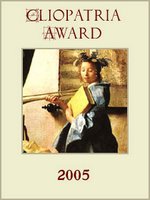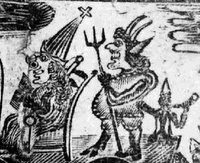My Cliopatria Awards Nominations
 for Best Group Blog: I like Savage Minds (notes and queries in Anthropology). Although SM is an anthroblog, many of the posts and discussions are very relevant to historians and their work. I especially liked the discussion of Jared Diamond's book Guns, Germs, and Steel. In other group blogs, I like all the Frog in a Well blogs. Frog in a Well: Korea is the newest and has been pretty active.
for Best Group Blog: I like Savage Minds (notes and queries in Anthropology). Although SM is an anthroblog, many of the posts and discussions are very relevant to historians and their work. I especially liked the discussion of Jared Diamond's book Guns, Germs, and Steel. In other group blogs, I like all the Frog in a Well blogs. Frog in a Well: Korea is the newest and has been pretty active.for Best Individual Blog: I like Natalie Bennett's Philobiblon, Respectful Insolence, Blog Them Out of the Stone Age, and Giornale Nuovo. This is going to be a tough category; there are several other blogs that could contend for this as well.
for Best Newcomer: Patahistory and Air-Minded.
for Best Post: two by Caleb McDaniel at Mode for Caleb: Jefferson's Jesus Nation, and The First Twenty Minutes. At Rob MacDougall's Old is the New New: Cyclons are the New Tribbles. At Cliopatria, Robert KC Johnson's Gould and the Senate.
for Best Series of Posts: At Spinning Clio, an Introduction to Historical Method.
for Best Writing: Sharon Howard of Early Modern Notes on duels and duelling: here, here, here, and here. (I couldn't nominate Sharon in the Best Series of Posts category, but all these on duelling were well-written and engaging and deserve some recognition.) And, Timothy Burke at Easily Distracted.
There are still many hours left in which to nominate! If you've got favorites in any of these categories, please do consider nominating them!



